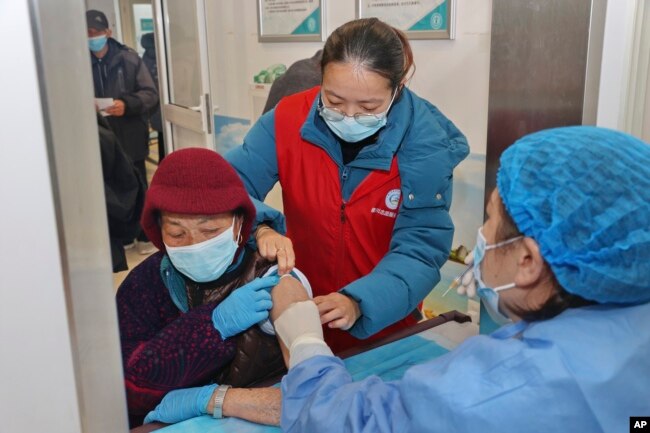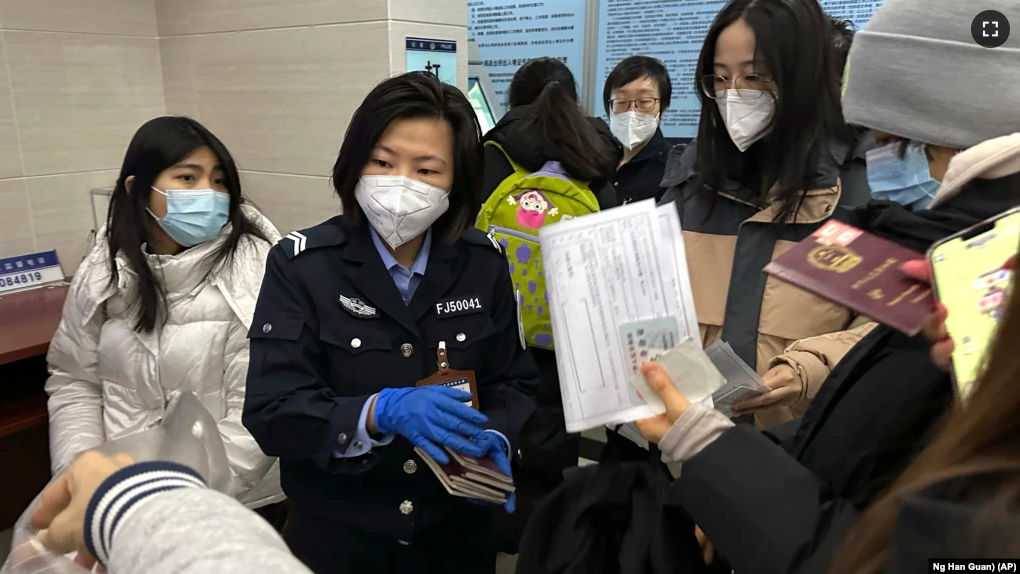China recently said it will resume giving out passports for tourism to its citizens. The move is another step away from severe COVID-19 rules that have isolated the country for almost three years.
The announcement, made Tuesday, could bring more Chinese tourists to places in Asia and Europe for the Lunar New Year. That holiday begins January 22 and is usually the country’s busiest travel period.
China’s “zero COVID” policy meant that millions of people were required to stay in their homes and travel was restricted. The rules kept the number of reported cases low. But that policy was unpopular. Also, economic growth in China has slowed notably.
The National Immigration Administration of China said it will start taking requests for tourist passports on January 8.
The decision comes at a time when reports say COVID-19 infections are increasing in China.
Japan, India, Italy, South Korea, Taiwan, and the United States have answered the increase in China’s infections by requiring virus tests for visitors from China.
China’s immigration agency said the country will “gradually resume” permitting foreign visitors. It did not say when foreign tourist travel might begin again.
The changes will “create better conditions for orderly cross-border travel” and improve “global economic development,” said a foreign ministry spokesman, Wang Wenbin.
Wang said that China will “work with all countries” to bring back safety and stability to the global supply of materials.
Health experts and economists expect the ruling Communist Party to keep limits on travel into China until at least the middle of 2023. During that time, health officials plan to vaccinate millions of old people. Health officials say such a campaign is necessary to prevent a public health crisis.

Instead of trying to stop all COVID cases, China is joining countries like Japan and the United States which are trying to live with the virus. China has recently dropped or reduced most quarantines, testing and other severe rules.
China will also end quarantine requirements for travelers arriving from other countries starting January 8.
Foreign companies have welcomed the changes as important to improving economic development.
The Chinese government has stopped reporting nationwide case numbers. However, data from some cities suggest that millions and possibly hundreds of millions of people might have been infected since early October.
I’m Andrew Smith.
Joe McDonald wrote this story for the Associated Press, with contributions from Zeke Miller and Hyung-jin Kim. Andrew Smith adapted it for VOA Learning English.
____________________________________________________________
Words in This Story
resume –v. to restart some activity after it was stopped or suspended
tourism –n. the activity of traveling to other places for pleasure
isolated –adj. apart from others; not being visited by other people
stability –n. the condition of being secure and not changing too much
quarantine –n. the condition of being kept apart from others to prevent the spread of disease
